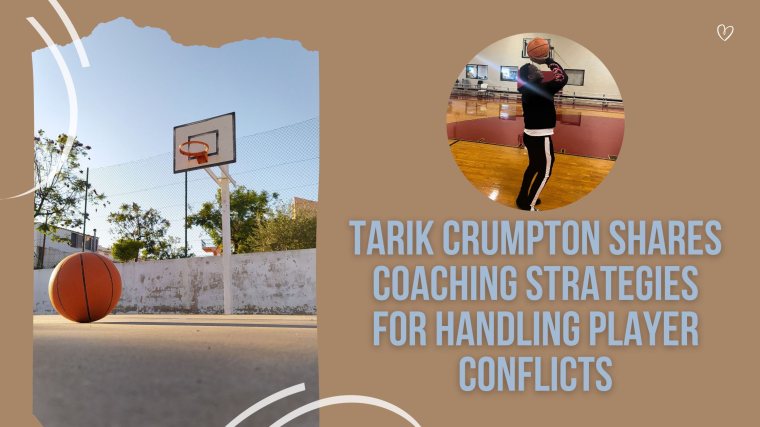In the world of sports, conflicts among players are not uncommon. However, a successful basketball coach knows that addressing and resolving player conflicts is vital for team cohesion and performance. In this blog, basketball coaching expert Tarik Crumpton explores the fundamentals of coaching strategies for handling player conflicts. With Tarik's insights, you'll learn how to diffuse tensions, foster a positive team environment, and transform conflicts into opportunities for growth.
Understand the Root Causes
To effectively address player conflicts, it's crucial to understand their underlying causes. Tarik Crumpton advises coaches to be attentive to changes in player behavior, communication, or performance, as these can be signs of underlying issues. By identifying whether conflicts arise from personal differences, playing time disputes, or other factors, coaches can tailor their approach to resolution.
Open Communication Channels
Effective communication is the cornerstone of resolving player conflicts. Tarik stresses the importance of creating an open and safe space for players to express their concerns. Coaches should encourage honest dialogue and active listening. By providing players with an opportunity to voice their grievances, coaches can gain insight into the issues at hand and work towards a solution collaboratively.
Mediate and Facilitate Discussions
In many cases, player conflicts can benefit from a mediator's intervention. TJ Crumpton suggests that coaches can play this role by facilitating structured discussions between conflicting players. These discussions should focus on finding common ground, understanding each other's perspectives, and establishing mutual respect. Mediation can often lead to resolutions that benefit both the players and the team as a whole.
Visit:-https://tarikcrumpton.com/
In the world of sports, conflicts among players are not uncommon. However, a successful basketball coach knows that addressing and resolving player conflicts is vital for team cohesion and performance. In this blog, basketball coaching expert Tarik Crumpton explores the fundamentals of coaching strategies for handling player conflicts. With Tarik's insights, you'll learn how to diffuse tensions, foster a positive team environment, and transform conflicts into opportunities for growth.
Understand the Root Causes
To effectively address player conflicts, it's crucial to understand their underlying causes. Tarik Crumpton advises coaches to be attentive to changes in player behavior, communication, or performance, as these can be signs of underlying issues. By identifying whether conflicts arise from personal differences, playing time disputes, or other factors, coaches can tailor their approach to resolution.
Open Communication Channels
Effective communication is the cornerstone of resolving player conflicts. Tarik stresses the importance of creating an open and safe space for players to express their concerns. Coaches should encourage honest dialogue and active listening. By providing players with an opportunity to voice their grievances, coaches can gain insight into the issues at hand and work towards a solution collaboratively.
Mediate and Facilitate Discussions
In many cases, player conflicts can benefit from a mediator's intervention. TJ Crumpton suggests that coaches can play this role by facilitating structured discussions between conflicting players. These discussions should focus on finding common ground, understanding each other's perspectives, and establishing mutual respect. Mediation can often lead to resolutions that benefit both the players and the team as a whole.
Visit:-https://tarikcrumpton.com/
0 Σχόλια
0 Μοιράστηκε

 Change Language
Change Language